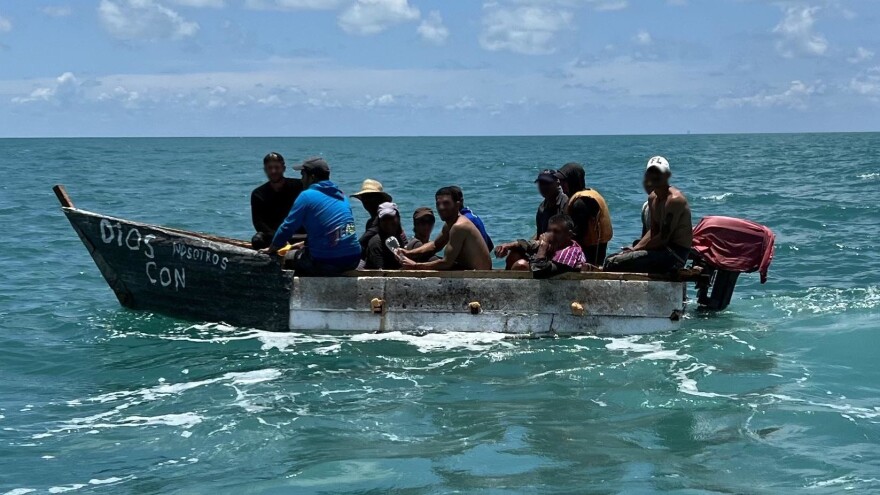Nonstop arrivals of migrants from Cuba, Haiti and other countries in the Florida Keys overwhelmed federal law enforcement agencies as the new year began.
Nearly 1,000 people arrived in the Keys by sea in dangerous — and illegal — trips between Christmas Eve and the first week of January. The Dry Tortugas National Park was forced to close for a week on Jan. 2, after some 400 Cubans had become stranded on the remote island.
Migrants and their families are struggling to find each other — and navigate a federal immigration system that's always subject to change.
But Monroe County must clean what's left behind on the beaches, shoreline and water: rickety makeshift boats left floating empty at sea or washed up on the shoreline.
Monroe officials are well-versed in the process required to remove discarded boats.
For years, the county has led the state in the number of abandoned or neglected boats on its waters, according to the Florida Fish and Wildlife Conservation Commission.In Florida government parlance, these are "derelict boats."
But with the significant increase of migrant landings, the task is more costly and time-consuming than ever before.
Additionally, county officials say they're concerned about environmental hazards as battered boats, some made of sprayed styrofoam and plastic barrels, keep piling up. Then there are the plastic jugs filled with fuel brought along on the 100-mile trips across the choppy, unpredictable Florida Straits.

Just at John Pennekamp State Park in Key Largo, the county says it has a $200,000 job in the works to remove four boats.
One boat alone will take $100,000 because it's in seagrass and will likely have to be dismantled in order to be removed. A contractor can't simply yank it out of the water,, county officials said.
Among the vessels are two wooden ships each about 50 feet long. One of the larger boats, used by a group of Haitian migrants, has sat in the water since March 2021.
The Keys rely on state funding for the removal of abandoned boats, which is more complex than ever, said Brittany Burtner, the Monroe County Senior Administrator of Marine Resources.
"They're large vessels and they're all in areas that are difficult to get to — and difficult to work in and not cause environmental damage," Burtner said.
Despite help from the Florida Fish and Wildlife Conservation Commission's derelict vessels program, Monroe county spent more money last year than ever before on migrant vessels.
In 2022, it cost the county about $93,000 to remove abandoned boats in general — of which, 67% went towards dealing with migrant boats, according to Monroe County spokeswoman Kristen Livengood.
Barely into the new year, the cost for 2023 is already far greater — and the county isn't always able to get outside grants to remove migrant boats.
“We routinely have to use county funds to remove the small homemade migrant vessels,” Burtner said. “They can break apart and become scattered marine debris that is virtually impossible to collect well before we can obtain grant funds to remove them.”
Some of these migrant boats become sunken waste in the island chain's already fragile environment, in waters which are federally protected.
The migration of people from Cuba, Haiti and other countries to the Keys has hit record numbers since Oct. 1. Besides those who have made it to shore, more than 4,000 Cuban migrants have been caught at sea by the U.S. Coast Guard, which typically returns them to Cuba on a cutter.
And that number doesn't include the thousands of migrants who have made it to the U.S. by land, with a chance to stay with friends and family while awaiting legal proceedings.






